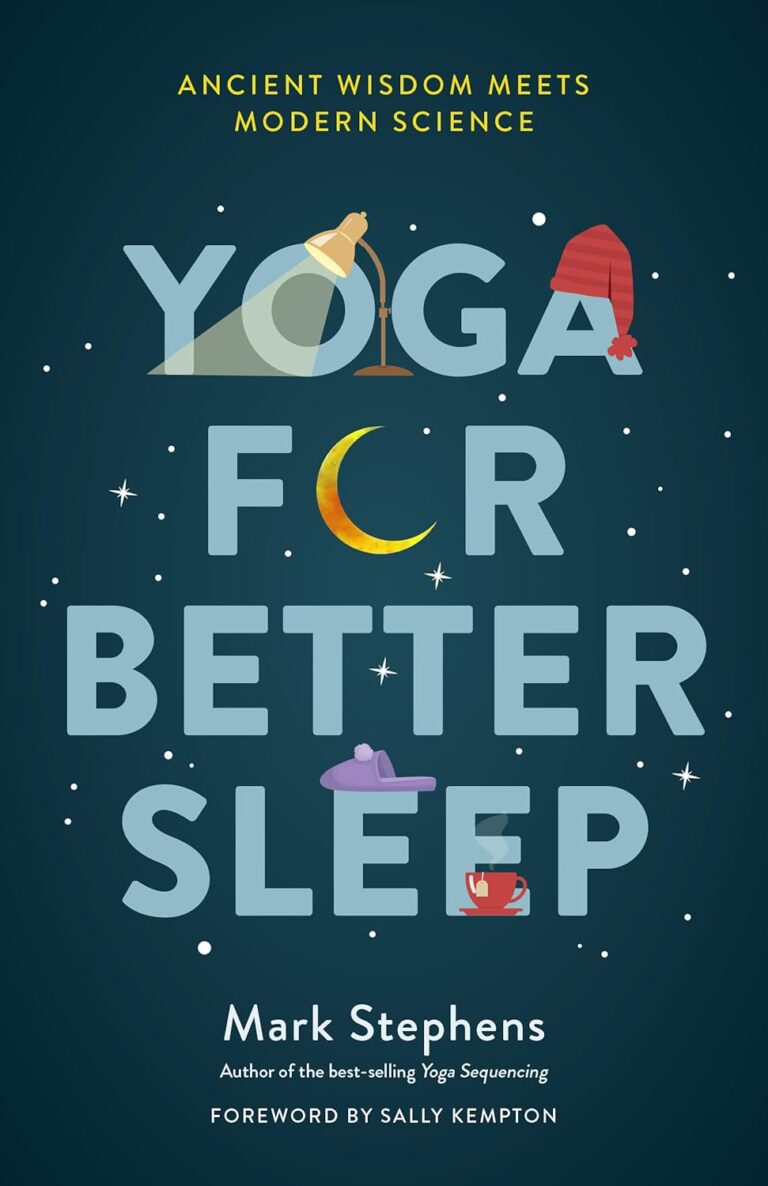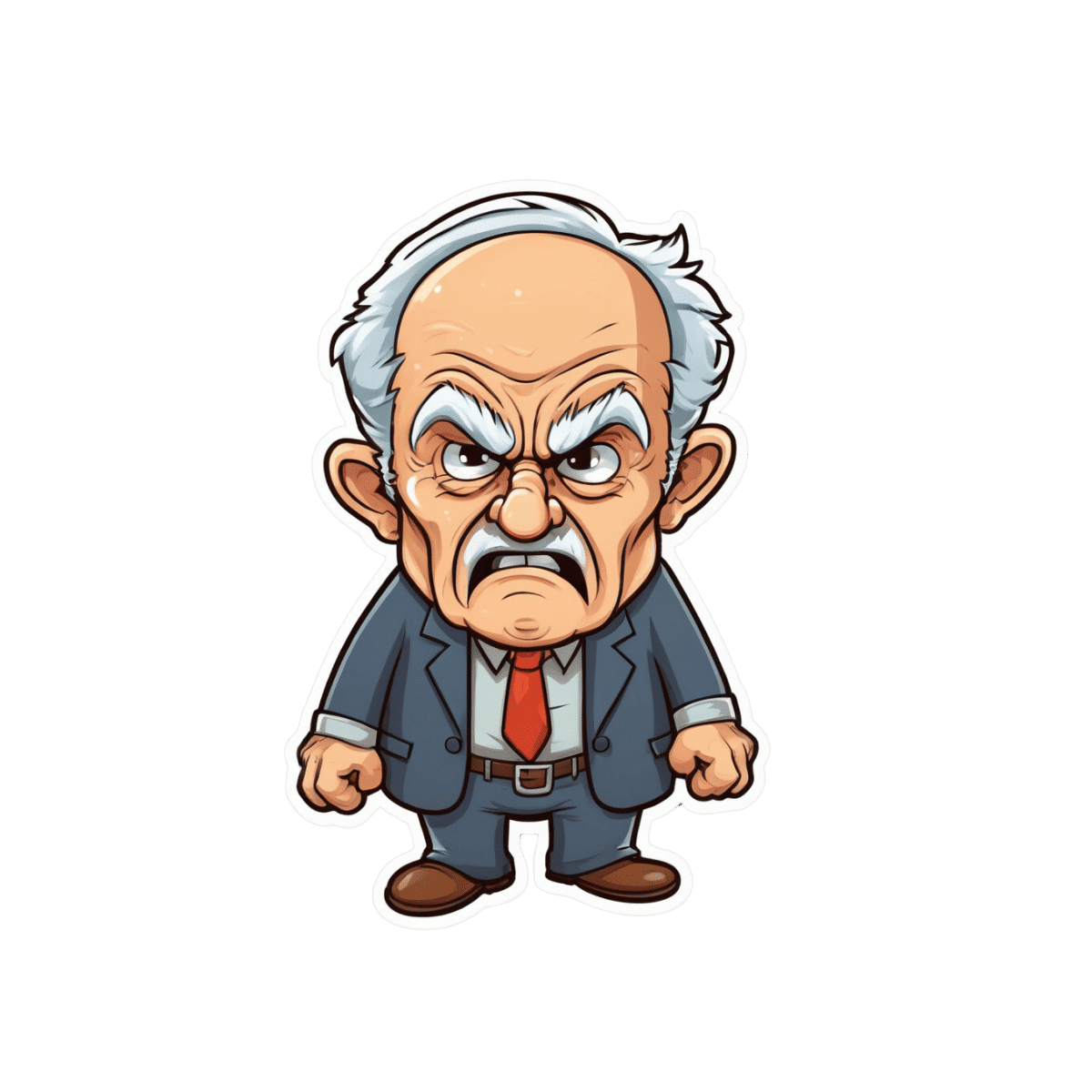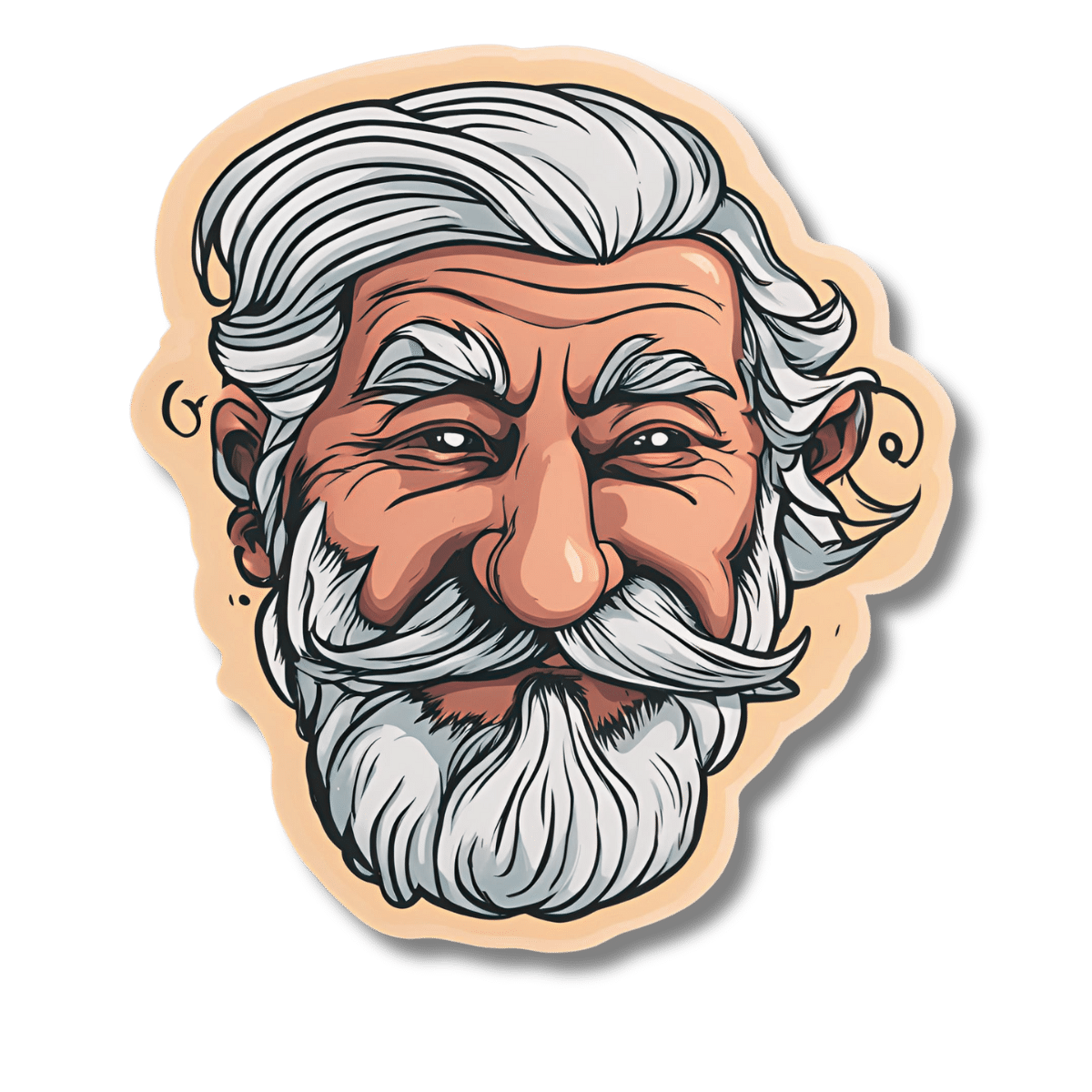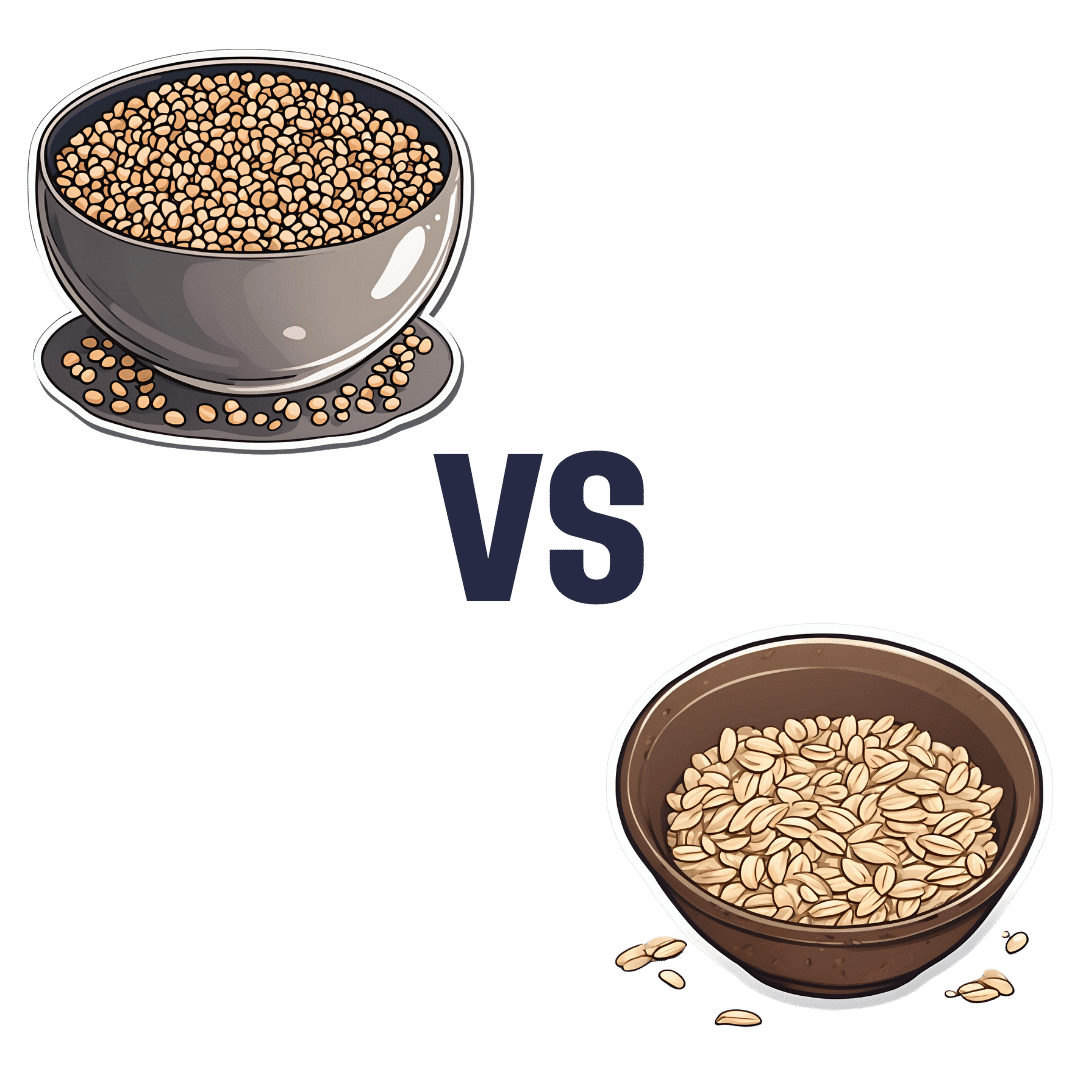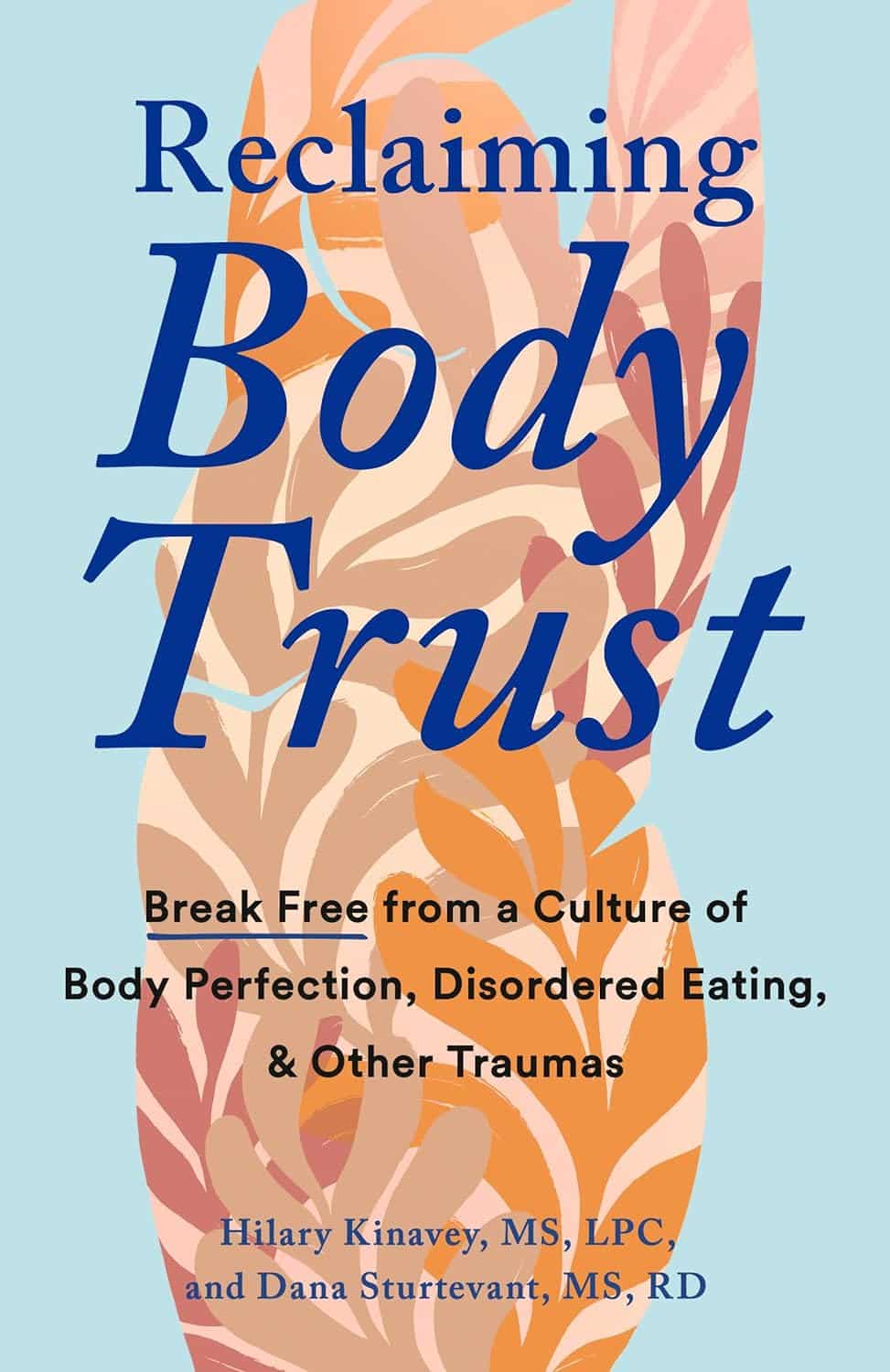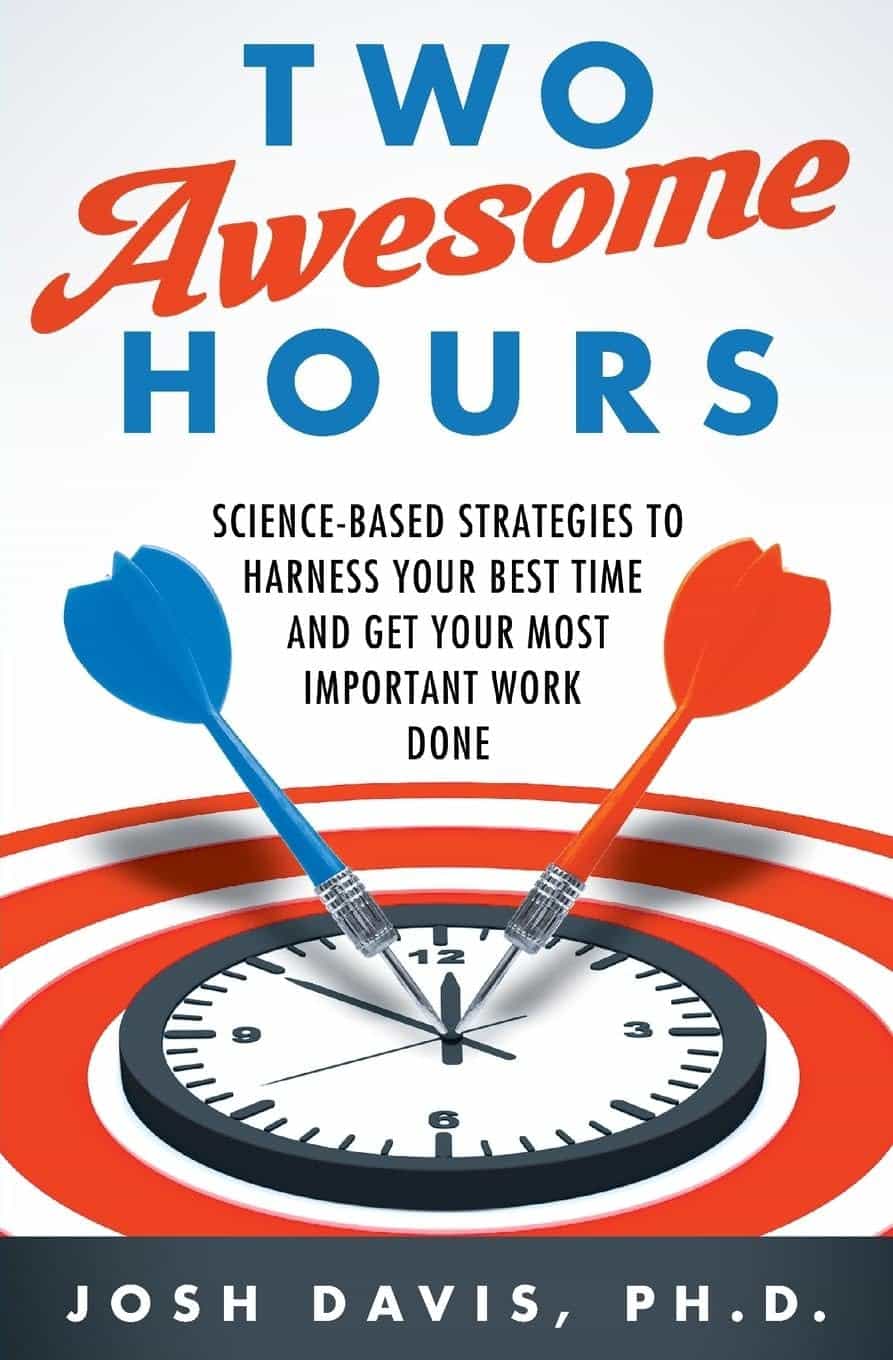
Two Awesome Hours – by Dr. Josh Davis
10almonds is reader-supported. We may, at no cost to you, receive a portion of sales if you purchase a product through a link in this article.
The brain is an amazing and powerful organ, with theoretically unlimited potential in some respects. So why doesn’t it feel that way a lot of the time?
The truth is that not only are we often tired, dehydrated, or facing other obvious physiological challenges to peak brain health, but also… We’re simply not making the best use of it!
What Dr. Davis does is outline for us how we can create the conditions for “two awesome hours” of effective mental performance by:
- Recognizing when to most effectively flip the switch on our automatic thinking
- Scheduling tasks based on their “processing demand” and recovery time
- Learning how to direct attention, rather than avoid distractions
- Feeding and moving our bodies in ways that prep us for success
- Identifying what matters in our environment to be at the top of our mental game
Why only two hours? Why not four, or eight, or more?
Well, our brains need recovery time too, so we can’t be “always on” and operating and peak efficiency. But, what we can do is optimize a couple of hours for absolute peak efficiency, and then enjoy the rest of time with lower cognitive-load activities.
Bottom line: if the idea of what you could accomplish if you could just be guaranteed two schedulable hours (your preference when!) of peak cognitive performance per day, then this is a great book for you.
Don’t Forget…
Did you arrive here from our newsletter? Don’t forget to return to the email to continue learning!
Recommended
Learn to Age Gracefully
Join the 98k+ American women taking control of their health & aging with our 100% free (and fun!) daily emails:
-
Older people’s risk of abuse is rising. Can an ad campaign protect them?
10almonds is reader-supported. We may, at no cost to you, receive a portion of sales if you purchase a product through a link in this article.
Elder abuse is an emerging public health and safety issue for communities of high-income countries.
The most recent data from Australia’s National Elder Abuse Prevalence Study, which surveyed 7,000 older people living in the community, found one in six self-reported being a victim of some form of abuse. But this did not include older people living in residential aged care or those with cognitive impairment, such as dementia – so is likely an underestimate.
This week the Australian government announced a multi-million dollar advertising campaign it hopes will address this serious and abhorrent abuse.
But is investing in community awareness of elder abuse the best use of scarce resources?
Nuttapong punna/Shutterstock What is elder abuse?
The World Health Organization (WHO) defines elder abuse as
[…] a single, or repeated act, or lack of appropriate action, occurring within any relationship where there is an expectation of trust which causes harm or distress to an older person.
Australia usually defines older people as those over 65. The exact age varies between countries depending on the overall health status of a nation and its vulnerable population groups. The WHO definitions of an older adult for sub-Saharan Africa, for example, is over 50. And there are communities with poorer health status and shorter lifespans within country borders, including our First Nations people.
Elder abuse can take on many different forms including physical, sexual, psychological, emotional, or financial abuse and neglect.
Living longer and wealthier
The number of older people in our society is greater than it has ever been. Around 17% Australians are aged 65 and over. By 2071, older Australians will make up between 25% and 27% of the total population.
People are living longer, accumulating substantial wealth and are vulnerable to abuse due to cognitive, physical or functional limitations.
Longer lifespans increase the time of possible exposure to abuse. Australian men aged 65 can expect to live another 20.2 years, while women aged 65 are likely to live another 22.8 years. (Life expectancy for First Nations men and women remains significantly shorter.)
Australian men are now 143 times more likely to reach the age of 100 than they were in 1901. Women are 82 times more likely.
Older people hold a large proportion of our nation’s wealth, making them vulnerable to financial abuse. Recent research by the Australian Council of Social Service and UNSW Sydney reveals older households (with people over 65) are 25% wealthier than the average middle-aged household and almost four times as wealthy as the average under-35 household.
Finally, older people have higher levels of impairment in their thinking, reasoning and physical function. Cognitive impairment, especially dementia, increases from one in 67 Australians under 60 to almost one in two people aged over 90.
Over half of Australians aged 65 years and over have disability. A particularly vulnerable group are the 258,374 older Australians who receive government-funded home care.
Who perpetrates elder abuse?
Sadly, most of the perpetrators of elder abuse are known to their victims. They are usually a member of the family, such as a life partner, child or grandchild.
Elder abuse causes significant illness and even early death. Financial abuse (across all ages) costs the community billions of dollars. Specific data for financial elder abuse is limited but indicates massive costs to individual survivors and the community.
Despite this, the level of awareness of elder abuse is likely to be much lower than for family violence or child abuse. This is partly due to the comparatively recent concept of elder abuse, with global awareness campaigns only developed over the past two decades.
Is an advertising campaign the answer?
The federal government has allocated A$4.8 million to an advertising campaign on television, online and in health-care clinics to reach the broader community. For context, last year the government spent $131.4 million on all media campaigns, including $32.6 million on the COVID vaccination program, $2 million on Japanese encephalitis and $3.2 million on hearing health awareness.
The campaign will likely benefit a small number of people who may be victims and have the capacity to report their perpetrators to authorities. It will generate some heartbreaking anecdotes. But it is unlikely to achieve broad community or systemic change.
There is little research evidence to show media campaigns alter the behaviour of perpetrators of elder abuse. And suggesting the campaign raises awareness of the issue for older people who are survivors of abuse sounds more like blaming victims than empowering them.
We don’t know how the government will judge the success of the campaign, so taxpayers won’t know whether a reasonable return on this investment was achieved. There may also be opportunity costs associated with the initiative – that is, lost opportunities for other actions and strategies. It could be more effective and efficient to target high-risk subgroups or to allocate funding to policy, practice reform or research that has direct tangible benefits for survivors. https://www.youtube.com/embed/DeK2kaqplTI?wmode=transparent&start=0 The Australian Human Rights Commission’s campaign from last year.
But the campaign can’t hurt, right?
Actually, the dangers that could come with an advertising campaign are two-fold.
First it may well oversimplify a highly complex issue. Identifying and managing elder abuse requires an understanding of the person’s vulnerabilities, their decision-making capacity and ability to consent, the will and preferences of victim and the role of perpetrator in the older person’s life. Abuse happens in the context of family and social networks. And reporting abuse can have consequences for the victim’s quality of life and care.
Consider the complexities of a case where an older person declines to have her grandson reported to police for stealing her money and medication because of her fear of becoming socially isolated. She might even feel responsible for the behaviour having raised the grandson and not want him to have a criminal record.
Secondly, a public campaign can create the illusion government and our institutions have the matter “in hand”. This might slow the opportunity for real change.
Ideally, the campaign will strengthen the argument for better policies, reporting procedures, policing, prosecution and judgements that are aligned. But these ends will also need investment in more research to build better communities that take good care of older people.
Joseph Ibrahim, Professor, Aged Care Medical Research Australian Centre for Evidence Based Aged Care, La Trobe University
This article is republished from The Conversation under a Creative Commons license. Read the original article.
Share This Post
-
Nasal Hair; How Far To Go?
10almonds is reader-supported. We may, at no cost to you, receive a portion of sales if you purchase a product through a link in this article.
t’s Q&A Day at 10almonds!
Have a question or a request? You can always hit “reply” to any of our emails, or use the feedback widget at the bottom!
In cases where we’ve already covered something, we might link to what we wrote before, but will always be happy to revisit any of our topics again in the future too—there’s always more to say!
As ever: if the question/request can be answered briefly, we’ll do it here in our Q&A Thursday edition. If not, we’ll make a main feature of it shortly afterwards!
So, no question/request too big or small
❝As a man in his sixties I find I need to trim my nasal hair quite frequently, otherwise it sticks out in an unsightly manner. But I’m never sure how severely I should cut the hairs back, or even how best to do it. Please advise.❞
As you might know, those hairs are really important for our health, so let’s start by mentioning that yes, trimming is the way, not plucking!
In an ideal world, we’d not trim them further back than the entrance to our nostrils, but given the constant nature of hair-growing, that could become a Sisyphean task.
A good compromise, if you’re not up for trimming when you get up and having visible hairs by evening, is to put the scissors away (if you haven’t already) and use a nasal hair trimmer; these are good at a) trimming nasal hairs b) abstaining from trimming them too far back.
By all means shop around, but here’s an example product on Amazon, for your convenience!
- Note 1: despite the product description, please do not stick this in your ear (or any other orifice that’s not your nose, for the love of all that is holey)
- Note 2: we chose that one for a reason; the shape of the head prevents overtrimming.
- In contrast, we do not recommend this cheaper one that has a different shape head for a closer trim, which in this case, is not what we want.
Enjoy!
Share This Post
-
Buckwheat vs Oats – Which is Healthier?
10almonds is reader-supported. We may, at no cost to you, receive a portion of sales if you purchase a product through a link in this article.
Our Verdict
When comparing buckwheat to oats, we picked the oats.
Why?
First of all, for any thinking about the health concerns sometimes associated with wheat: buckwheat is not a kind of wheat, nor is it even in the same family; it’s not a grain, but a flowering plant. Buckwheat is to wheat as a lionfish is to lions.
That said, while these are both excellent foods, one of them is so good it makes the other one look bad in comparison:
In terms of macros, oats have more carbs, but also more protein and more fiber.
When it comes to vitamins, a clear winner emerges: oats have more of vitamins B1, B2, B5, B6, and B9, while buckwheat is higher in vitamin K and choline.
In the category of minerals, things are even more pronounced: oats are higher in calcium, iron, magnesium, manganese, phosphorus, potassium, and zinc. On the other hand, buckwheat is higher in selenium.
All in all: as ever, enjoy both, but if you’re picking one, oats cannot be beaten.
Want to learn more?
You might like to read:
The Best Kind Of Fiber For Overall Health?
Take care!
Share This Post
Related Posts
-
Reclaiming Body Trust – by Hilary Kinavey & Dana Sturtevant
10almonds is reader-supported. We may, at no cost to you, receive a portion of sales if you purchase a product through a link in this article.
Authored by a therapist and a dietician, this book draws from both of their extensive professional clinical experiences, to explore how we can (often early in our lives) be led into disordered thinking when it comes to food and our bodies, and how we can “take back that which has been stolen from us”.
More prosaically: the presented goal here is for us to each figure out where we are with our own body, and how we might build our relationship with same going forwards, in the way that will work the best for us.
The style is relaxed and conversational, while taking care to cover topics that are often tricky with no less seriousness. Chapter headings such as “Your coping is rooted in wisdom”, “What does grief have to do with it?” and “Allowing for pleasure and satisfaction” give an idea of the flavors at hand here.
Bottom line: if you think your relationship with food and your body could be better, not only are you probably right, but also, this book can help.
Don’t Forget…
Did you arrive here from our newsletter? Don’t forget to return to the email to continue learning!
Learn to Age Gracefully
Join the 98k+ American women taking control of their health & aging with our 100% free (and fun!) daily emails:
-
When can my baby drink cow’s milk? It’s sooner than you think
10almonds is reader-supported. We may, at no cost to you, receive a portion of sales if you purchase a product through a link in this article.
Parents are often faced with well-meaning opinions and conflicting advice about what to feed their babies.
The latest guidance from the World Health Organization (WHO) recommends formula-fed babies can switch to cow’s milk from six months. Australian advice says parents should wait until 12 months. No wonder some parents, and the health professionals who advise them, are confused.
So what do parents need to know about the latest advice? And when is cow’s milk an option?
What’s the updated advice?
Last year, the WHO updated its global feeding guideline for children under two years old. This included recommending babies who are partially or totally formula fed can have whole animal milks (for example, full-fat cow’s milk) from six months.
This recommendation was made after a systematic review of research by WHO comparing the growth, health and development of babies fed infant formula from six months of age with those fed pasteurised or boiled animal milks.
The review found no evidence the growth and development of babies who were fed infant formula was any better than that of babies fed whole, fresh animal milks.
The review did find an increase in iron deficiency anaemia in babies fed fresh animal milk. However, WHO noted this could be prevented by giving babies iron-rich solid foods daily from six months.
On the strength of the available evidence, the WHO recommended babies fed infant formula, alone or in addition to breastmilk, can be fed animal milk or infant formula from six months of age.
The WHO said that animal milks fed to infants could include pasteurised full-fat fresh milk, reconstituted evaporated milk, fermented milk or yoghurt. But this should not include flavoured or sweetened milk, condensed milk or skim milk.
If you’re choosing cow’s milk for your baby, make sure it’s whole milk rather than skim milk. Mr Adi/Shutterstock Why is this controversial?
Australian government guidelines recommend “cow’s milk should not be given as the main drink to infants under 12 months”. This seems to conflict with the updated WHO advice. However, WHO’s advice is targeted at governments and health authorities rather than directly at parents.
The Australian dietary guidelines are under review and the latest WHO advice is expected to inform that process.
OK, so how about iron?
Iron is an essential nutrient for everyone but it is particularly important for babies as it is vital for growth and brain development. Babies’ bodies usually store enough iron during the final few weeks of pregnancy to last until they are at least six months of age. However, if babies are born early (prematurely), if their umbilical cords are clamped too quickly or their mothers are anaemic during pregnancy, their iron stores may be reduced.
Cow’s milk is not a good source of iron. Most infant formula is made from cow’s milk and so has iron added. Breastmilk is also low in iron but much more of the iron in breastmilk is taken up by babies’ bodies than iron in cow’s milk.
Babies should not rely on milk (including infant formula) to supply iron after six months. So the latest WHO advice emphasises the importance of giving babies iron-rich solid foods from this age. These foods include:
- meat
- eggs
- vegetables, including beans and green leafy vegetables
- pulses, including lentils
- ground seeds and nuts (such as peanut or other nut butters, but with no added salt or sugar).
You may have heard that giving babies whole cow’s milk can cause allergies. In fact, whole cow’s milk is no more likely to cause allergies than infant formula based on cow’s milk.
If you’re introducing cow’s milk at six months, offer iron-rich foods too, such as meat or lentils. pamuk/Shutterstock What are my options?
The latest WHO recommendation that formula-fed babies can switch to cow’s milk from six months could save you money. Infant formula can cost more than five times more than fresh milk (A$2.25-$8.30 a litre versus $1.50 a litre).
For families who continue to use infant formula, it may be reassuring to know that if infant formula becomes hard to get due to a natural disaster or some other supply chain disruption fresh cow’s milk is fine to use from six months.
It is also important to know what has not changed in the latest feeding advice. WHO still recommends infants have only breastmilk for their first six months and then continue breastfeeding for up to two years or more. It is also still the case that infants under six months who are not breastfed or who need extra milk should be fed infant formula. Toddler formula for children over 12 months is not recommended.
All infant formula available in Australia must meet the same standard for nutritional composition and food safety. So, the cheapest infant formula is just as good as the most expensive.
What’s the take-home message?
The bottom line is your baby can safely switch from infant formula to fresh, full-fat cow’s milk from six months as part of a healthy diet with iron-rich foods. Likewise, cow’s milk can also be used to supplement or replace breastfeeding from six months, again alongside iron-rich foods.
If you have questions about introducing solids your GP, child health nurse or dietitian can help. If you need support with breastfeeding or starting solids you can call the National Breastfeeding Helpline (1800 686 268) or a lactation consultant.
Karleen Gribble, Adjunct Associate Professor, School of Nursing and Midwifery, Western Sydney University; Naomi Hull, PhD candidate, food security for infants and young children, University of Sydney, and Nina Jane Chad, Research Fellow, University of Sydney School of Public Health, University of Sydney
This article is republished from The Conversation under a Creative Commons license. Read the original article.
Don’t Forget…
Did you arrive here from our newsletter? Don’t forget to return to the email to continue learning!
Learn to Age Gracefully
Join the 98k+ American women taking control of their health & aging with our 100% free (and fun!) daily emails:
-
10 Tips for Better Sleep: Starting In The Morning
10almonds is reader-supported. We may, at no cost to you, receive a portion of sales if you purchase a product through a link in this article.
Dr. Siobhan Deshauer advises:
Checklist
You’ll probably have heard similar advice before (including from us), but it’s always good to do a quick rundown and check which ones you are actually doing, as opposed to merely know you should be doing:
- Wake up at the same time every day, including weekends, to maintain a consistent sleep schedule and avoid “social jet lag.”
- Expose yourself to bright light in the morning, either sunlight or light therapy, to regulate your circadian rhythm and melatonin production.
- Avoid caffeine late in the day to maintain natural sleep pressure, experimenting with a cutoff time based on your sensitivity (e.g. 6–10 hours before bedtime)*.
- Limit naps to under 30 minutes and take them early in the afternoon to avoid disrupting sleep pressure.
- Exercise regularly but avoid strenuous activity 2 hours before bed. Optimal exercise time is 4–6 hours before bedtime.
- Avoid alcohol, as it disrupts sleep quality and may worsen conditions like sleep apnea. If drinking, have your last drink early in the evening—but honestly, it’s better to not drink at all.
- Establish a wind-down routine 1–2 hours before bed, including dimming lights and engaging in relaxing activities to signal your body to prepare for sleep.
- Keep your bedroom cool (below 68°F/20°C) and ensure your hands and feet stay warm to aid in natural body temperature regulation.
- Limit device use before bed. If unavoidable, reduce blue light exposure and avoid mentally stimulating content. Set boundaries, such as placing your phone out of reach.
- Ensure complete darkness in your sleeping environment using blackout curtains, covering light-emitting devices, or wearing a sleep mask.
*we imagine she picked 6–10 hours because, depending on whether you have the fast or slow caffeine metabolizer gene, the biological halflife of caffeine in your body will be around 4 or 8 hours (that’s not a range, that’s two distinct and non-overlapping options). However, if we use 4 or 8 hours depending on which gene version we have, then that will mean that 4 or 8 hours later, respectively, we’ll have half the caffeine in us that we did 4 or 8 hours ago (that’s what a halflife means). So for example if you had a double espresso that number of hours before bedtime, then congratulations, you have the caffeine of a single espresso in your body by bedtime. Which, for most people**, is not an ideal nightcap. Hence, adding on a few more hours. Again, earlier is better though, so consider limiting caffeine to the morning only.
**we say “most people”, because if you have ADHD or a similar condition, your brain’s relationship with caffeine is a bit different, and—paradoxically—stimulants can help you to relax. Do speak with your doctor though, as individual cases vary widely, and it also may make a difference depending on what relevant meds (if any) you’re on, too.
For more on all of those things, enjoy:
Click Here If The Embedded Video Doesn’t Load Automatically!
Want to learn more?
You might also like to read:
- How Regularity Of Sleep Can Be Even More Important Than Duration ← here’s why you should still get up at the same regular (and ideally, early) hour, even if you didn’t sleep well
- Early Bird Or Night Owl? Genes vs Environment ← and here’s why that regular hour should ideally be early, even if it’s not your genetic predisposition to be a “morning lark”; see also the study linked there that mentions “Gene distinguishes early birds from night owls and helps predict time of death”
Take care!
Don’t Forget…
Did you arrive here from our newsletter? Don’t forget to return to the email to continue learning!
Learn to Age Gracefully
Join the 98k+ American women taking control of their health & aging with our 100% free (and fun!) daily emails:

